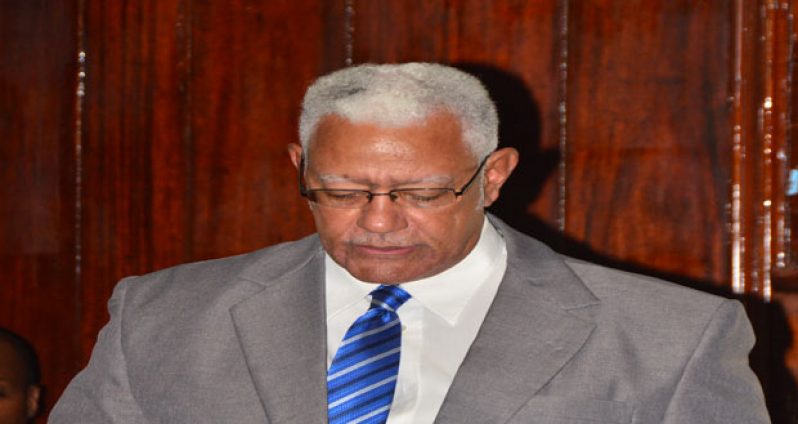TRINIDAD and Tobago has not signalled its intention to invest in the Intermediate Savannah and the Canje Basin since the formation of the A Partnership for National Unity + Alliance For Change (APNU+AFC) government; a matter in which the Agriculture Minister Noel Holder intends to raise in Mexico during the convening of the International Agriculture Conference later this month.According to Minister Holder, discussions between the Agriculture Ministry and Trinidad’s Food Production Ministry have been at a standstill for months.
Nevertheless, given the economic benefits that could be derived from such a partnership, he said the proposal will be placed high on the agenda.
“We are CARICOM partners and so we prefer to have that kind of investment than even investment farther afield, at least the money going out will be within CARICOM,” he told the Chronicle.
Last December, investors representing more than 15 commercial entities from the twin-island republic had started screening Guyana’s economic landscape in the field of agriculture.
Under the stewardship of the then Agriculture Minister, Dr. Leslie Ramsammy and Trinidad’s Food Production Minister Devant Maharaj the investors were granted the opportunity to consult with officials from the Agriculture Ministry, Go-Invest and the Guyana Lands and Surveys Commission on the availability of land, soil types and market trade logistics. Additionally, information was presented on rainfall data for the last five (5) years and the climate of the potential sites.
It was agreed by the two ministries that subsequent to the visit, the investors would have submitted their scope of work but this is yet to be done.
In September 2013, a Memorandum of Understanding (MoU) was signed between the two countries to facilitate T&T’s investors in Guyana for agricultural production. However, it has since expired.
The Trinidadian Food Production Ministry had expressed an interest in utilising 10,000 acres of land in Guyana for the purpose of sustainable food production, but the Guyana Government had signalled its willingness to provide 1,000 acres during the initial stage had the MoU evolved into an agreement.
The MOU had addressed programmes and activities, core areas of cooperation, monitoring and coordinating mechanism, mutual responsibility, commitments and settlements, rights and obligations and scope for termination.
Recognising that global food insecurity remains a major problem across the world due to rising food prices amid declining food production levels due to climate change, the parties had signed the agreement in their quest to reduce their food import bills. For Trinidad, this plan is in keeping with its National Food Production Action Plan 2012-2015.



.jpg)








